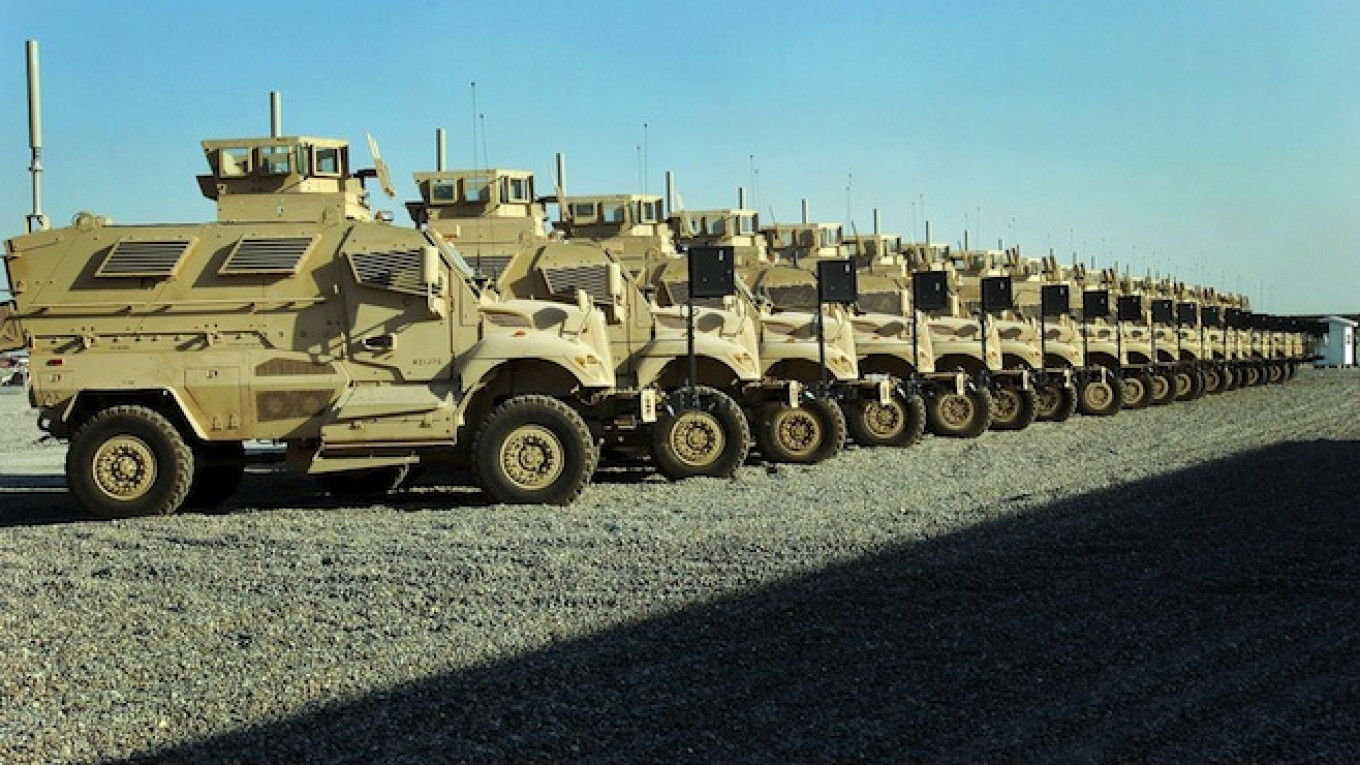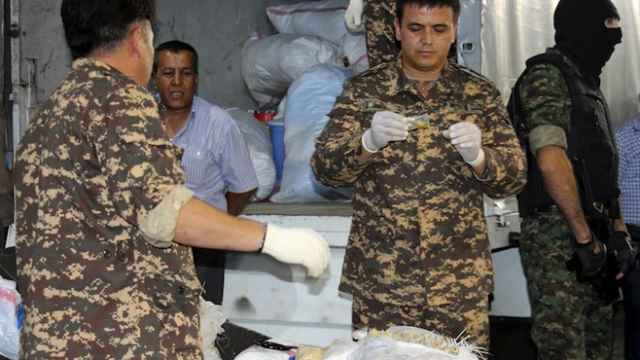Originally published by EurasiaNet.org
State Department officials have defended the provision of armored vehicles to Uzbekistan against criticism that it is irresponsible to reward a government with such a poor record of treating its citizens, while more military aid to Tashkent appears to be in the works.
In January, the State Department announced that it was giving more than 300 used Mine-Resistant Armor-Protected (MRAP) vehicles to Uzbekistan, the largest transfer of U.S. military equipment to a Central Asian country. It was surprising move given that Uzbekistan's star in Washington seemed to be falling: the U.S. is pulling out of Afghanistan and so neighboring Uzbekistan is no longer a critical partner in the war effort.
Nevertheless, the U.S. wants to help Uzbekistan and the MRAPs are "purely defensive vehicles" and would only be used by the Ministry of Defense forces and not by police units of the Ministry of Internal Affairs, said Deputy Assistant Secretary of State for South and Central Asia Daniel Rosenblum.
Rosenblum was testifying before Congress at a June 25 hearing of the Tom Lantos Human Rights Commission, "Civil and Political Rights in Uzbekistan and Central Asia: Implications for Post-2014 U.S. Foreign Policy." He was asked by the commission's chairman, Massachusetts Democratic Rep. James McGovern, what the "rationale" was for giving the vehicles to Uzbekistan given the country's poor human rights record, which includes firing on and killing hundreds of its own civilians in 2005 protests.
"We determined that they would help to improve Uzbekistan's border security and its ability to carry out counterterrorism and counternarcotics operations, and because these were determined to be purely defensive vehicles. They will be used only by Ministry of Defense personnel; internal security or police forces are not authorized to use the equipment," Rosenblum said. "And the equipment is subject to end-use restrictions and regular monitoring by U.S. personnel on the ground. The other piece of this gets to vetting of the actual units that will be using the equipment and that has to go through a process to ensure compliance with human rights concerns as well. The security cooperation with Uzbekistan that we have is always infused with this element of connection between protection of human rights and security partnership … whenever we do training, whenever we have a dialogue about security cooperation there's always an element in there about how important the protection of human rights is or there are actually courses that are oriented toward that goal that are part of the security training."
That answer did not satisfy McGovern: "I appreciate all the words that there is going to be due diligence and proper oversight and all that stuff, but it just doesn't strike me as appropriate that we would do something like that."
And Jeff Goldstein, Senior Policy Analyst, Eurasia at the Open Society Foundations in Washington, testified at the hearing that those safeguards are ineffective in an environment like Uzbekistan's, and that giving military equipment carries a "reputational" risk, citing the example of U.S. military assistance to Kyrgyzstan during the rule of President Kurmanbek Bakiyev, who was overthrown in 2010.
"You simply can not produce effective reform in countries where there is no political will to create reform," he testified. "And there are dangers in this. If you look at videos shot when the Bakiyev government fell, the snipers firing from the roof of the government house in Bishkek were wearing what very much looked like U.S.-supplied uniforms. And so there's a very significant reputational risk that goes into things like providing MRAPs to Uzbekistan." [EurasiaNet.org is run under the auspices of the Open Society Foundation-New York City.]
When the U.S. started pulling out of Afghanistan in 2014, some senior U.S. officials suggested that it would be an opportunity to rebalance U.S. policy in Central Asia, with less of an emphasis on security and more on political and economic reforms. But it's not clear that that has happened; in the case of Uzbekistan, at least, the U.S. is looking at more military aid.
In February, Rosenblum suggested that more equipment transfers to Uzbekistan were in the works: "At the moment we are in discussions about other potential equipment, but I can't announce anything else here today." In April, the U.S. announced that it was also donating patrol boats and vehicles to Uzbekistan's border guards; it's not clear whether this is what Rosenblum had been referring to.
Separately, U.S. ambassador to Tashkent Pamela Spratlen suggested that the U.S. was looking to expand its military cooperation with Uzbekistan. In an interview last week with Voice of America's Uzbek service, Spratlen was asked about the MRAPs and whether the U.S. was hoping to build on that. "Of course we want to build on every area of cooperation," Spratlen said. "So, you know, I don't have anything specific to tell you now, but I can say that the United States believes that the security area is important for us, and it's important for Uzbekistan. This is an important time with respect to what's happening in Afghanistan, and there have been concerns on the part of Uzbekistan. So we want to try to build on the dialogue that we've been having, and build on the cooperation we've had and been having, of course. I'm not in a position to say anything specific about that right now, but certainly that's our goal — to make sure that we're always building on the cooperation that we've established so far."
A Message from The Moscow Times:
Dear readers,
We are facing unprecedented challenges. Russia's Prosecutor General's Office has designated The Moscow Times as an "undesirable" organization, criminalizing our work and putting our staff at risk of prosecution. This follows our earlier unjust labeling as a "foreign agent."
These actions are direct attempts to silence independent journalism in Russia. The authorities claim our work "discredits the decisions of the Russian leadership." We see things differently: we strive to provide accurate, unbiased reporting on Russia.
We, the journalists of The Moscow Times, refuse to be silenced. But to continue our work, we need your help.
Your support, no matter how small, makes a world of difference. If you can, please support us monthly starting from just $2. It's quick to set up, and every contribution makes a significant impact.
By supporting The Moscow Times, you're defending open, independent journalism in the face of repression. Thank you for standing with us.
Remind me later.






